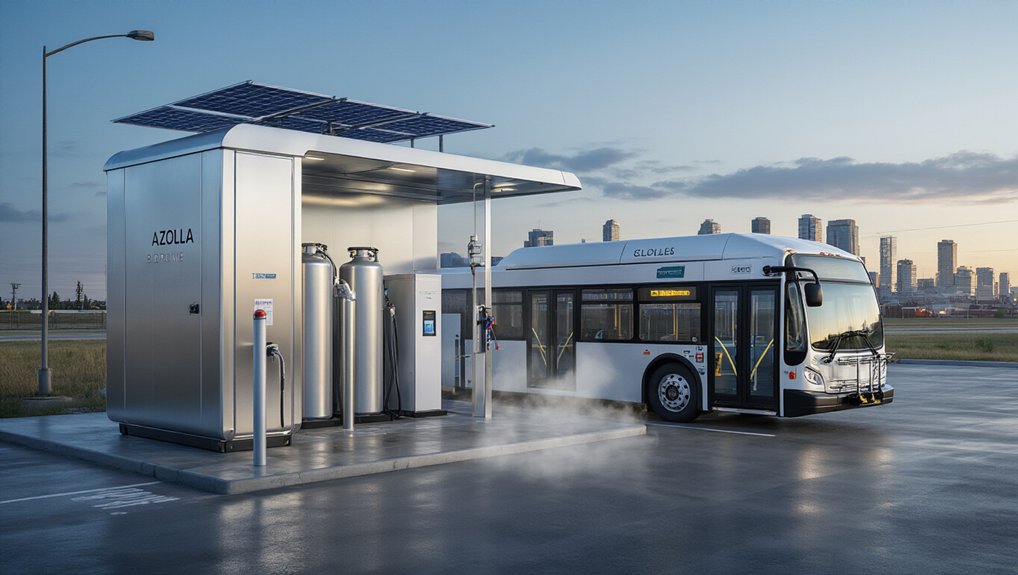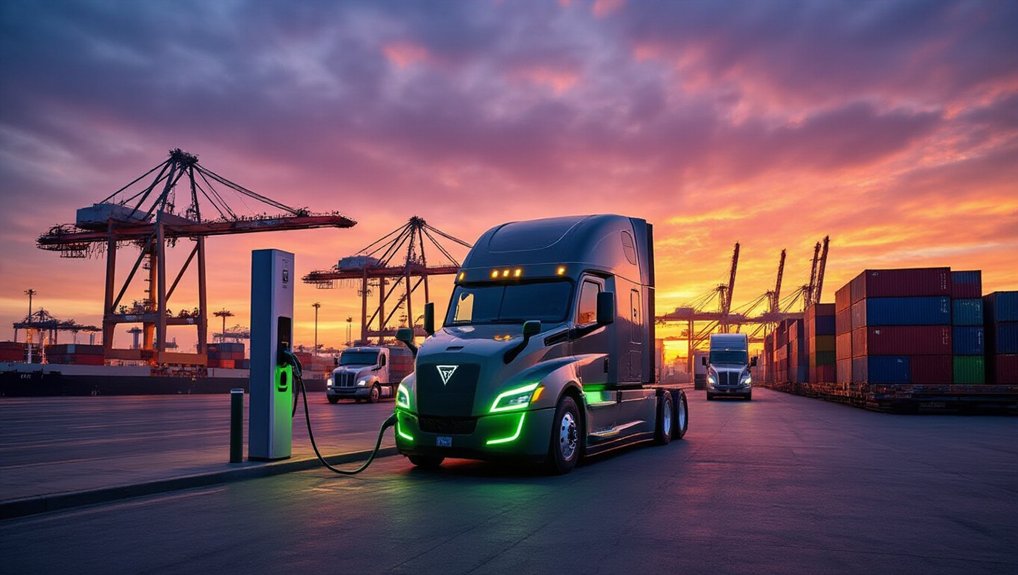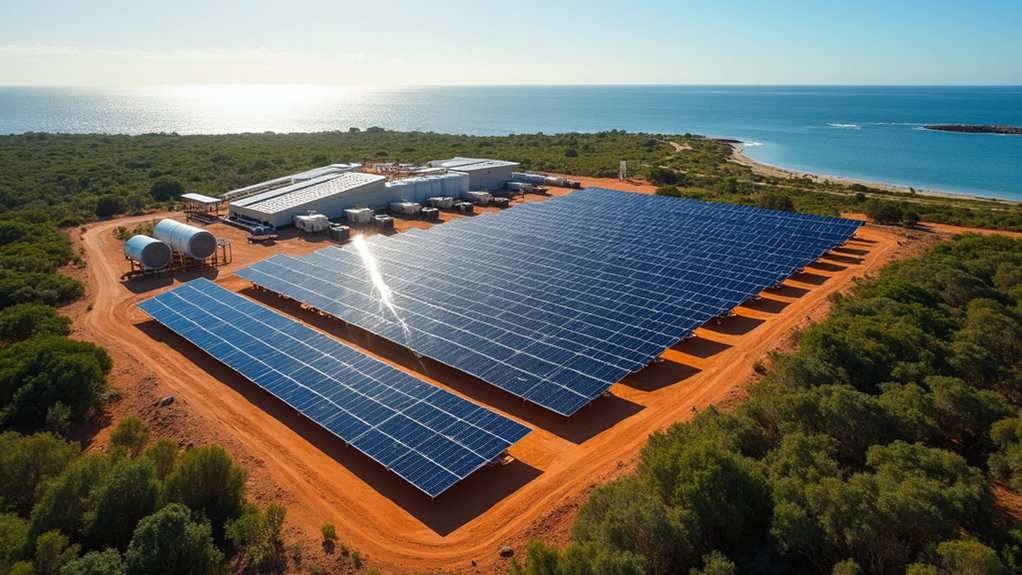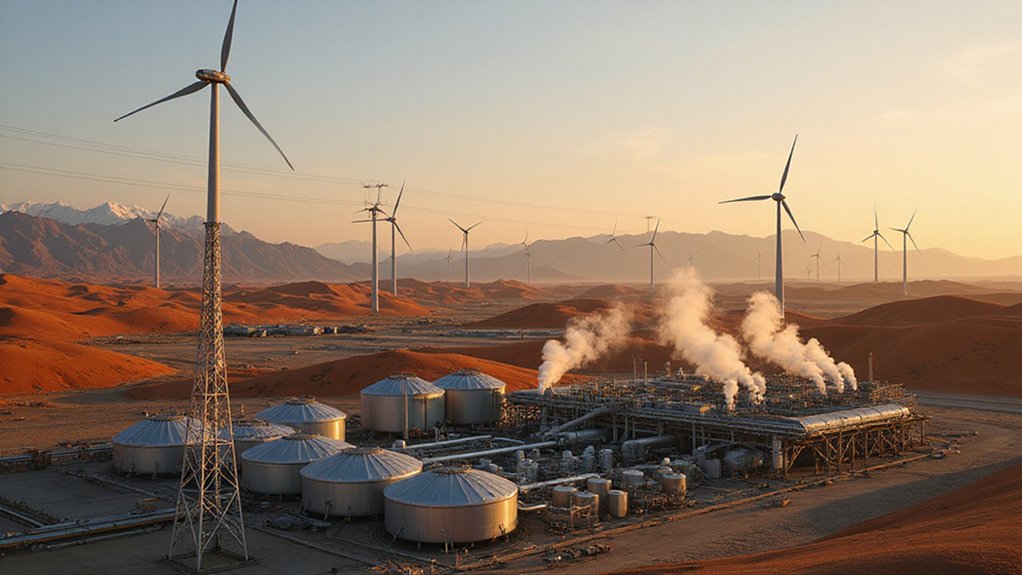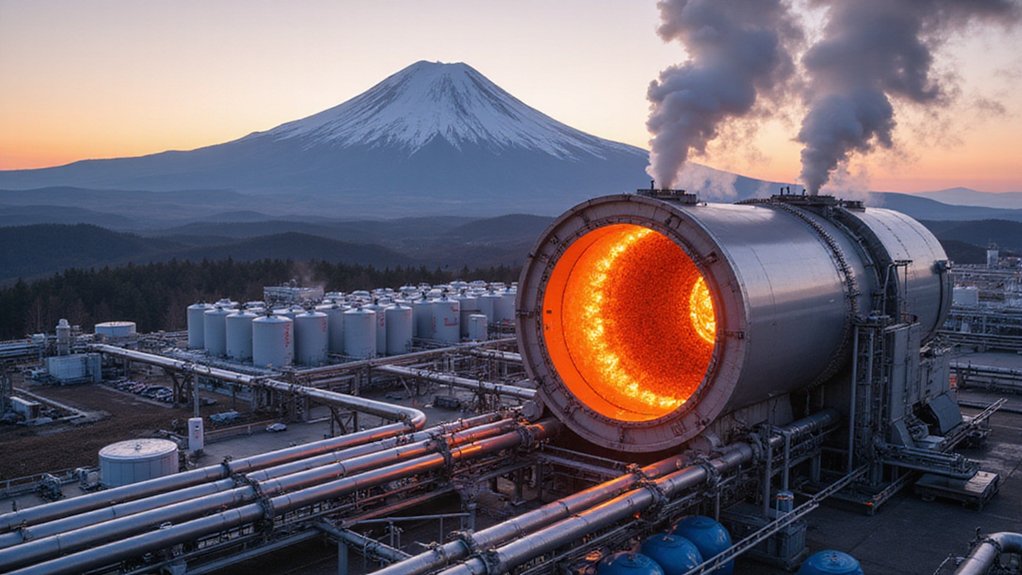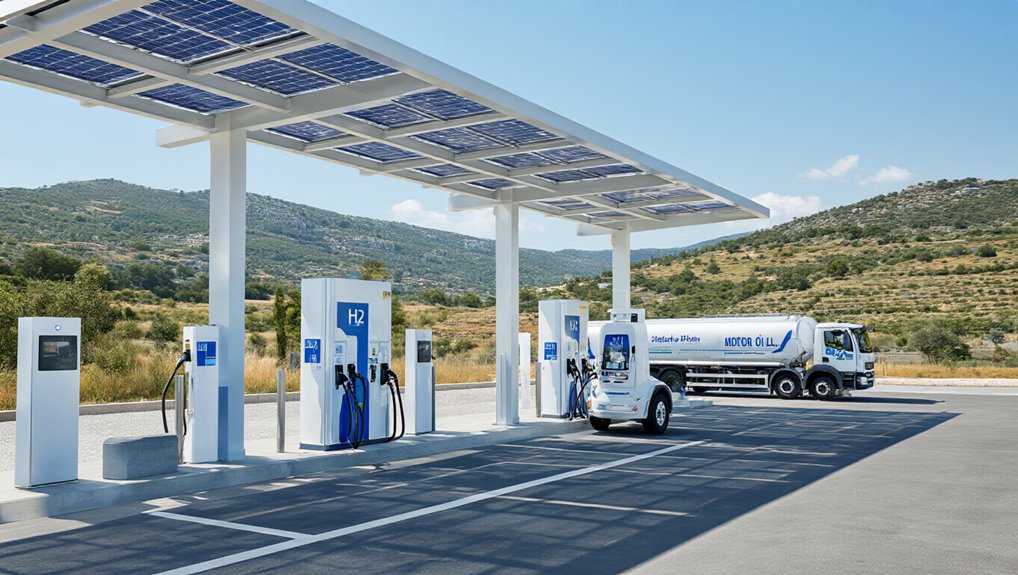In a groundbreaking move for Alberta’s green energy environment, Edmonton launched the province’s first mobile hydrogen fuelling station on June 26, 2025. Located at the City’s fleet facility in Ellerslie, this isn’t your grandpa’s gas station. It’s called the Azolla Biodrome—fancy name for a big metal box that makes hydrogen.
The system works by converting methanol and deionized water into hydrogen fuel. Simple chemistry, complex implications. With 16 storage tanks holding 600 kilograms of hydrogen, it’s enough to keep the city’s small but growing fleet of hydrogen vehicles on the road. Two buses, two cars, and a waste truck. Not exactly taking over the streets yet, but you gotta start somewhere.
Converting methanol to hydrogen—not revolutionary yet, but enough to fuel Edmonton’s humble fleet of five hydrogen vehicles.
This station arrived just in time. The previous commercial hydrogen station went belly-up in April when its operator filed for bankruptcy. Talk about perfect timing.
The $6.9 million project didn’t materialize out of thin air. Emissions Reduction Alberta footed a big chunk of the bill back in April 2024. The City of Edmonton led the charge, partnering with Strathcona County, Sturgeon County, and a bunch of organizations with long names and acronyms.
Edmonton isn’t stopping at one station. A second mobile unit is planned for the northeast side in 2026. Ambitious? Maybe. Necessary? Probably.
The whole setup is part of the Alberta Zero Emissions Fleet Fuelling project—AZEFF for the acronym lovers. The pilot will run until 2027, gathering real-world data on how these vehicles perform in Edmonton’s famously gentle weather. Right.
What makes this station unique is its mobility. Need hydrogen somewhere else? Pack it up and move it. Can’t do that with your neighborhood Shell station. Unlike traditional energy sources, the hydrogen technology offers high efficiency rates and consistent energy production regardless of weather conditions. The technology leverages four years of development from Azura Hydrogen’s bio reactor systems. The station represents an important step toward zero-emission transportation within Alberta’s climate action strategy.
For a province known for its oil, this hydrogen station represents a small but significant shift. It’s not changing the world overnight. But for a place where fossil fuels have been king, it’s a start. A small, mobile, hydrogen-producing start.
References
- https://www.ctvnews.ca/edmonton/article/albertas-first-mobile-hydrogen-fuelling-station-launches-in-edmonton/
- https://www.youtube.com/watch?v=zPAd2hwaJZ0
- https://www.edmonton.ca/city_government/initiatives_innovation/mobile-fuelling-project
- https://www.sherwoodparknews.com/news/local-news/county-supports-350k-mobile-hydrogen-fuelling-station
- https://www.desmog.com/2025/04/23/albertas-first-commercial-hydrogen-fuelling-station-removed-ahead-of-edmonton-expo/
